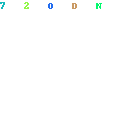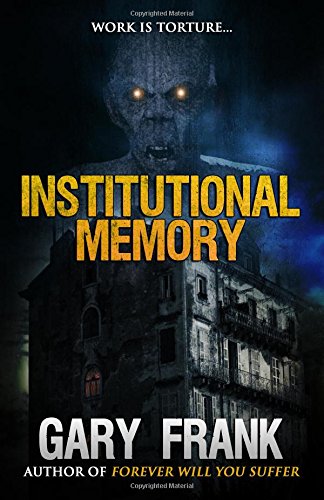We spent many hours on research to finding institutional intelligence, reading product features, product specifications for this guide. For those of you who wish to the best institutional intelligence, you should not miss this article. institutional intelligence coming in a variety of types but also different price range. The following is the top 9 institutional intelligence by our suggestions:
Reviews
1. Institutional Intelligence: How to Build an Effective Organization
Description
Institutions matter. They give us an opportunity to have an influence for the common good that far outlasts us. But we often assume that institutions are at cross-purposes with dynamic communities, with personal vocational calling, and with core human values. We view them somewhat cynically as, perhaps, a necessary evil. Institutions, far from that, remain essential to human flourishing. They are the very means by which communities thrive, individual vocations are fulfilled, and society is changed for the good. As a result, we all need to learn how to work effectively within institutions. That is just what Gordon Smith provides. He unpacks the core of institutional intelligencethe wisdom of working effectively within an organization. At the same time, he shows how team leaders, directors, executives, board members, key stakeholders, and employees can avoid what is often their greatest source of stress on the jobworking with the institutional character of their organizations. Focusing on the non-profit sector, Smith unlocks the essential elements of how institutions function in a productive, healthy manner. Church staff, educators, and those in service agencies can all thrive by understanding these dynamics instead of fighting against them. By developing this essential vocational capacity, we and those around us can not only fulfill ourselves but also a mission that is larger than we are.2. Institutional Racism in Psychiatry and Clinical Psychology: Race Matters in Mental Health (Contemporary Black History)
Description
This book examines the deep roots of racism in the mental health system. Suman Fernando weaves the histories of racial discourse and clinical practice into a narrative of power, knowledge, and black suffering in an ostensibly progressive and scientifically grounded system. Drawing on a lifetime of experience as a practicing psychiatrist, he examines how the system has shifted in response to new forms of racism which have emerged since the 1960s, highlighting the widespread pathologization of black people, the impact of Islamophobia on clinical practice after 9/11, and various struggles to reform. Engaging and accessible, this book makes a compelling case for the entrenchment of racism across all aspects of psychiatry and clinical psychology, and calls for a paradigm shift in both theory and practice.3. Building Capacity in Institutional Research and Decision Support in Higher Education (Knowledge Studies in Higher Education)
Description
This book examines the relevant roles, skills and knowledge needed to build the institutional research capacity across the higher education sector globally. The information contained herein will inform IR practitioners, senior level institution officials, and higher education scholars. With a focus on building the capacity of the IR profession, this books primary audiences include senior leaders who wish to introduce or strengthen their understanding for effective decision support and staff members who are currently in decision support units and those who wish to serve in this capacity. However, this book also offers detail on the decision support function to higher education scholars who seek to better address how data can inform policy and planning in higher education. Through a broad discussion about the roles and skills of the practitioners, this book will also enumerate the ways in which decision support practitioners can be valued contributors in shaping the future decisions and direction of specific institutions and higher education broadly.
4. Institutional Memory
Description
Standing five stories tall in a relatively small city, the Howard Phillips building is like any other building: it is secretly inhabited by an entity from another plane of existence that feeds off the energy of the people who work within its walls. Unfortunately, the life form inhabiting this particular building has been infected by a sort of virus of hate; as companies move out and its inhabitants dwindle this alien intelligence has chosen to use fear as a means of obtaining sustenance. It is up to Jon, Marcy, and Bettie to stop this haunting presence before its too late.5. Scaling Up Excellence: Getting to More Without Settling for Less
Feature
Crown BusinessDescription
Wall Street Journal Bestseller"The pick of 2014's management books."Andrew Hill, Financial Times
"One of the top business books of the year." Harvey Schacter, The Globe and Mail
Bestselling author, Robert Sutton and Stanford colleague, Huggy Rao tackle a challenge that determines every organizations success: how to scale up farther, faster, and more effectively as an organization grows.
Sutton and Rao have devoted much of the last decade to uncovering what it takes to build and uncover pockets of exemplary performance, to help spread them, and to keep recharging organizations with ever better work practices. Drawing on inside accounts and case studies and academic research from a wealth of industries-- including start-ups, pharmaceuticals, airlines, retail, financial services, high-tech, education, non-profits, government, and healthcare-- Sutton and Rao identify the key scaling challenges that confront every organization. They tackle the difficult trade-offs that organizations must make between whether to encourage individualized approaches tailored to local needs or to replicate the same practices and customs as an organization or program expands. They reveal how the best leaders and teams develop, spread, and instill the right mindsets in their people-- rather than ruining or watering down the very things that have fueled successful growth in the past. They unpack the principles that help to cascade excellence throughout an organization, as well as show how to eliminate destructive beliefs and behaviors that will hold them back.
Scaling Up Excellence is the first major business book devoted to this universal and vexing challenge and it is destined to become the standard bearer in the field.
6. Organizational Intelligence: Knowledge and Policy in Government and Industry (Classics of the Social Sciences)
Description
This prize-winning, foundational book now in a new edition featuring a 2015 Foreword by Neil Smelser focuses on the structural and ideological roots of intelligence failures (both informational and analytical) found in government, industry, and other institutions. It provides groundbreaking theory and structure to the analysis of decision-making processes and their breakdowns, as well as the interactions among experts and the organizations they inform. Smelser writes that the book remains one of the classics in organizational studies, and it is still directly relevant to current and future problems of organizational life. What makes this book a classic? It is a disciplined, intelligent, and elegant model of applied social science. The text itself, richly documented empirically, yields an informed and balanced account of the decision-making process as this is shaped by the quality of information available (and unavailable) to and used (and not used) by organizational leaders. Reviews of the book at the time it was written similarly attest to the originality and breadth of its interdisciplinary analysis. Amitai Etzioni wrote in the American Sociological Review: This book opens a whole new field the macrosociology of knowledge. It is as different from the traditional sociology of knowledge as the study of interaction is from that of the structure of total societies. He added, The power of Wilenskys contribution is further magnified by his historical perspective. He studies structures and processes, but not in a vacuum. Gordon Craig wrote in The Reporter that the books examples from organizations show a similar tendency to believe what they want to believe, to become the victims of their own slogans and propaganda, and to resist or to silence warning voices that challenge their assumptions. In his fascinating analysis of intelligence failures and their causes in the public and private sectors, Wilensky finds that the most disastrous miscalculations are those which have occurred in the field of governmental operations, especially foreign policy and national security. The book explains how such highly institutionalized actors are vulnerable to informational pathologies. A compelling new addition to the 'Classics of the Social Sciences' Series from Quid Pro Books.7. Artificial Intelligence in the Capital Markets: State-Of-The-Art Applications for Institutional Investors, Bankers & Traders
Feature
Used Book in Good ConditionDescription
Unlike other books on artificial intelligence which emphasize theory, Artificial Intelligence in the Capital markets is eminently practical. Not only does it describe actual applications, it provides a wealth of information about systems design, software products, and leading consulting firms in the industry. Comprehensive and authoritative, the book covers the entire AI field from the perspective of an existing or prospective user of AI technologies. Some of the applications highlighted in the breakthrough book include: fidelity investments applying neural networks to stock selection; hedge fund manager James O'Sullivan using neural networks to filter information and identify investment opportunities; Lehman Brothers designing an "intelligent infrastructure" for its front office.8. Using Qualitative Research to Promote Organizational Intelligence: New Directions for Institutional Research, Number 174 (J-B IR Single Issue Institutional Research)
Description
Learn how to use qualitative research as a tool for institutional research.Although institutional researchers often employ informal qualitative methods (their experiences and anecdotal observations), this volume argues that true organizational intelligence is facilitated by formalizing the qualitative data collection and analysis process in institutional research. To that end, it presents a systematic approach to qualitative research in institutional research that connects technical and analytical skills with issues awareness and knowledge of context. Topics covered include:
This is the 174th volume of this Jossey-Bass quarterly report series. Timely and comprehensive, New Directions for Institutional Research provides planners and administrators in all types of academic institutions with guidelines in such areas as resource coordination, information analysis, program evaluation, and institutional management.
9. The French Foreign Legion: A Complete History of the Legendary Fighting Force
Description
Unparalleled in the thoughtfulness and detail of its coverage.The Washington Post
The French Foreign Legion is a complete, captivating study of the famed fighting force, from its inception in 1831 to modern times. Historian Douglas Porch chronicles the Legions involvement in Spain, Mexico, Indochina, Madagascar, WWI, Vietnam, and Algiers (to name a few) and delves into the inner workings of legionnaires and their captains. Known for draconian discipline and shrouded in mystery, the secrets of the Legion are guarded by those who have gained admittance into its elite society. In this thoroughly researched and impressive account, Porch reveals the mysteries surrounding a Legion of unparalleled exoticism, pathos, and drama. 65 black-and-white photographs








